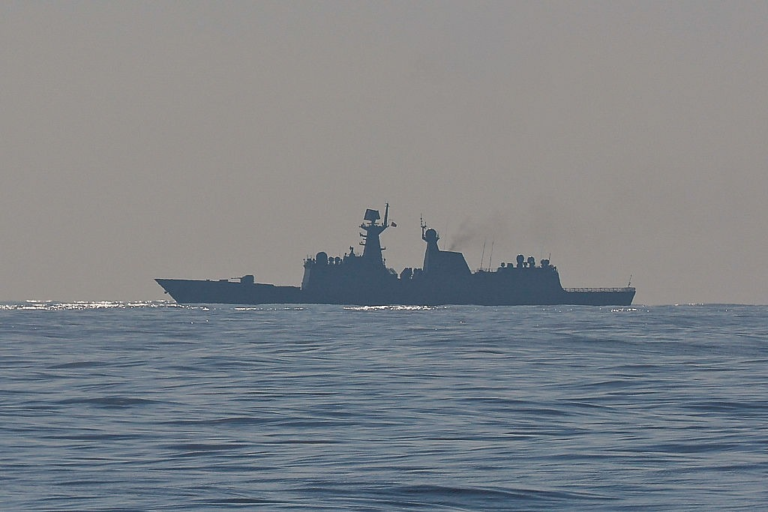
The US Navy says its most advanced aircraft carrier has arrived in the Caribbean Sea. Washington has spoken of regional security and the fight against narcotics traffickers. Observers are looking to Venezuela’s reaction.
The US Navy on Sunday confirmed that its most advanced fighting ships had arrived in the Caribbean Sea as the White House continues to make threats against Venezuela.
In a statement, the Navy said that the USS Gerald R. Ford and its accompanying carrier strike group — which includes fighter jets, two guided-missile destroyers, and other support vessels and aircraft — had joined several other US warships already in the Caribbean as part of Operation Southern Spear.
Nearly a dozen Navy ships and some 12,000 sailors and Marines are currently deployed to the Caribbean as part of the operation.
Head of US Southern Command (SOUTHCOM) Admiral Alvin Holsey, who oversees the Caribbean and Latin America, said in a statement that the American forces, “stand ready to combat the transnational threats that seek to destabilize our region.”
Why is US flexing military might in the Western Hemisphere?
The US has been very active off the coasts of several Latin American countries of late, most notably Venezuela, in what it has declared a war on transnational “narcoterrorism.” This designation is key, allowing the use of US military force in the fight.
Over the past several weeks, the US has carried out at least 20 attacks on small boats in the Caribbean Sea and the Pacific Ocean, killing at least 80 individuals whom Washington claims were drug traffickers.
The US has yet to provide evidence of criminal activity by any of those killed.
Critics condemn the strikes as illegal extrajudicial killing, regardless of any crime.
US carrying out naval exercises off Venezuela’s coast with regional partners
The deployment comes amid ongoing US military exercises with Trinidad and Tobago.
Just seven miles (11 kilometers) off the Venezuelan coast at its nearest point, Trinidad and Tobago has itself become a stopover for drugs on their way to the US and Europe and its prime minister has welcomed the US strikes.
Exercises on slate include some with Marines 22nd Expeditionary Unit soldiers stationed on Navy ships off Venezuela’s coast for the past few months. Venezuela views the military buildup as an explicit threat. On Venezuela’s President Nicolas Maduro called the drills an “irresponsible” act of aggression.
The US does not recognize Nicolas Maduro as Venezuela’s rightful president, saying he should resign.
Washington has also put out a $50 million (€42 million) reward for his capture to face charges of leading a drug cartel.
President Donald Trump has suggested that US troops may have to take their fight beyond the seas to stem the flow of illegal drugs into the US.
Trump recently told CBS News that he doubted the US would go to war with Venezuela but that he thought Maduro’s days were numbered.
While analysts note that the USS Ford Carrier Strike Group may be ill-suited for drug interdiction, it seriously increases pressure on Maduro to leave.




